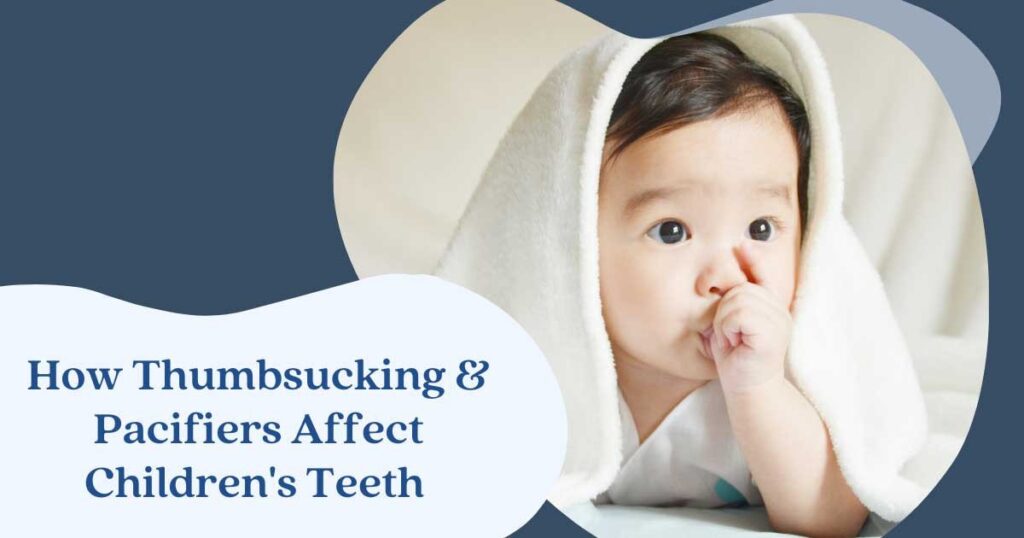
Your child’s oral development is impacted by more than just genetics. Something as simple as how our muscles move each day will also guide teeth into specific situations. One classic example is prolonged pacifier and thumbsucking.
Ideally, sucking habits need to be addressed by your child’s first birthday, and no later than 18-24 months. Even if it provides a calming mechanism for your child, the severe side effects can be detrimental to your child’s oral development.
Here are some concerns our OKC kids dentist wants you to be aware of:
Permanent Orthodontic Concerns
Extended sucking on a thumb or pacifier will permanently reshape the facial bones and shape of the jaws. The pressure from a thumb or pacifier will also work similar to an orthodontic appliance, in that it moves the position of your child’s teeth. In this case, the positional change isn’t a good one.
Usually, thumb sucking and pacifier sucking will cause the top front teeth to jet outward. In some situations, it causes the front teeth to not fit together at all. When your child’s back teeth bite together, there is a giant gap or “open bite” between the front top and bottom teeth.
These growth irregularities are not simple fixes. If care is delayed, it could result in the need for serious oral surgery to correct the misshaped bones in your child’s mouth. Not to mention the braces required to bring teeth into a proper occlusion (biting relationship.)
Side note: When the upper front teeth jet out, children are at a statistically higher risk of dental emergencies like broken or chipped teeth.
Jaw Pain
When your child’s crooked teeth don’t bite together properly, their TMJ (jaw joint) must move irregularly to chew food. Over time, all of those atypical joint movements can cause serious TMJ pain or joint damage.
TMJ disorders often present themselves as headaches or earaches. They can also contribute to teeth clenching and grinding or jaw clicking.
Tongue Thrusting
A chronic sucking habit changes the natural muscle movements of your child’s developing tongue. Instead of pushing against the roof of the mouth, the tip of the tongue tends to press against the teeth. This “tongue thrust” motion changes the way your child’s facial bones and adult teeth are positioned, leading to additional orthodontic concerns.
Speech Delays
Your child’s speech development is closely related to the shape of their mouth, muscle movements of their tongue, and how the lips form around their front teeth. When serious open bites or tongue concerns exist, your child’s natural speech patterns can be significantly altered.
Visit Our OKC Children’s Dentist
Pragma Dental offers comprehensive children’s dentistry in Oklahoma City. If your child is due for an exam or you need advice on breaking a strong thumb-sucking habit, reserve your family’s next visit with us!

